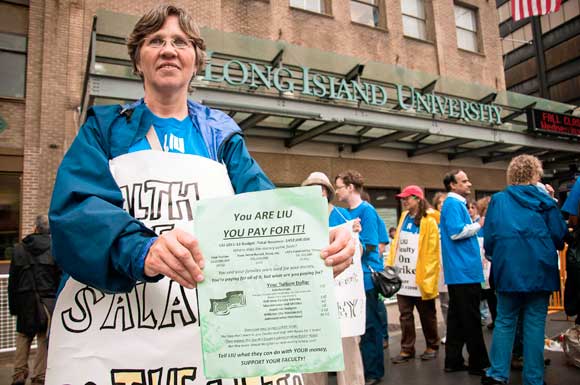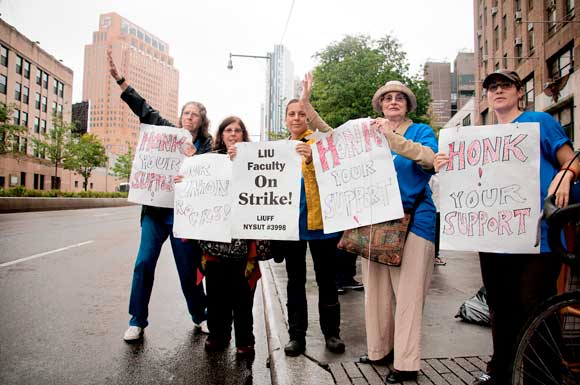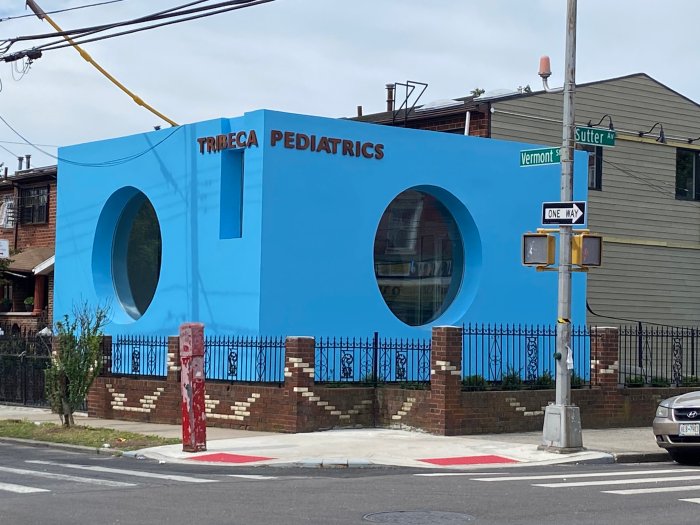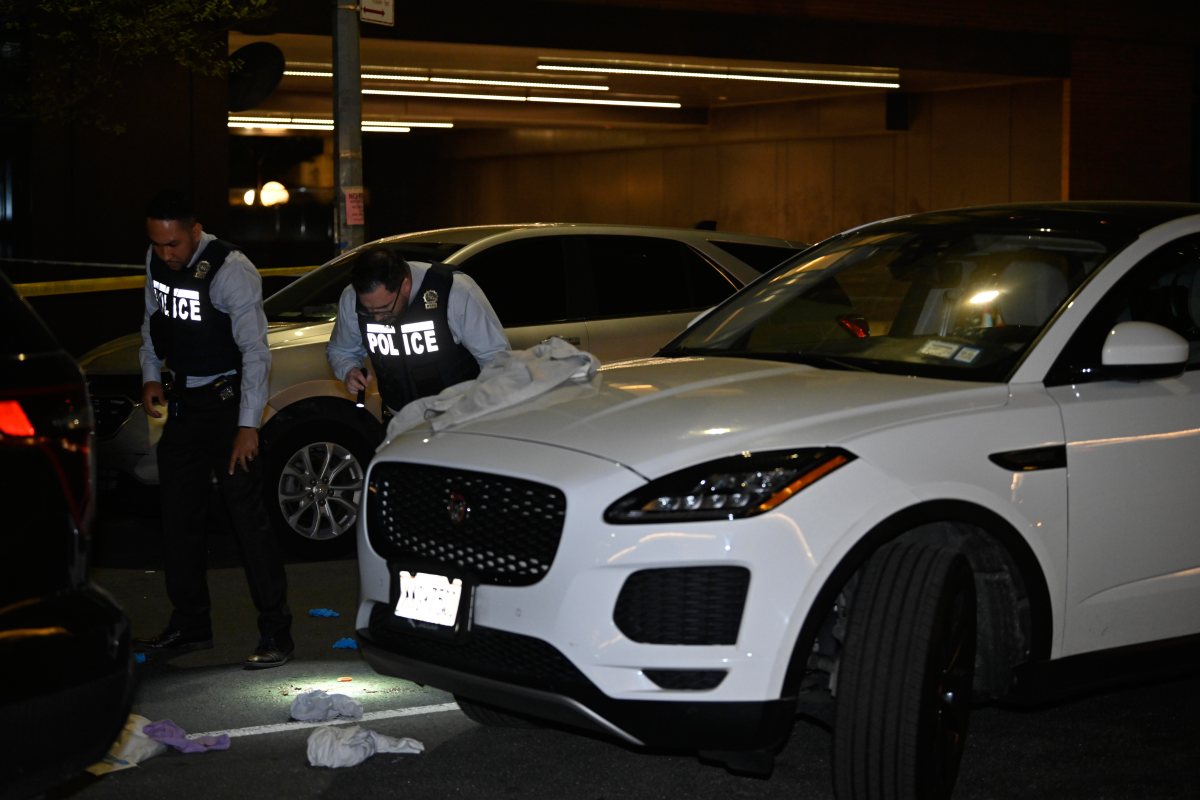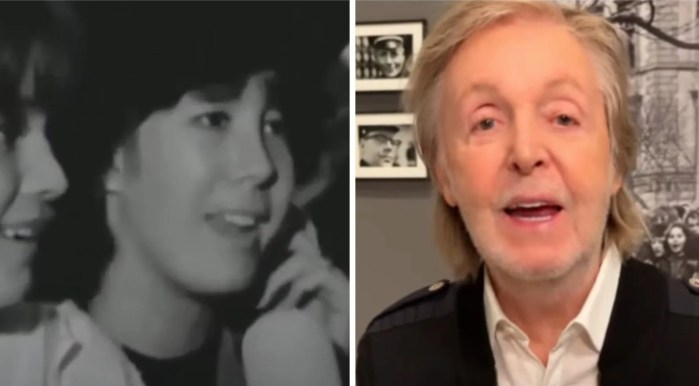Instructors at Long Island University’s Downtown campus walked off the job on Wednesday, scrubbing the first day of classes and claiming that the private institution isn’t paying them “a living wage.”
In a real-world economics lesson, about 50 LIU professors marched outside the DeKalb Avenue campus to protest a new five-year contract offer that would freeze salaries for three years — and then grant raises of two percent in the final two years of the contract, but only if the $30,000 annual tuition increases during the same period.
The teachers’ current contract expired on Aug. 31. Staffers mocked the proposed deal, saying that the school’s starting salaries of $56,000 for instructors and $63,000 for professors are already substandard.
“The faculty is the soul of this institution,” said Ralph Engelman, a journalism professor. “It’s a real blow to the whole school; it makes it harder to attract and keep quality staffers.”
Students who arrived at the campus on Wednesday were surprised to find their teachers on the picket lines, not behind the lectern.
In some cases, administrators led classes on the extremely local current events topic.
“This is crazy,” sophomore Katie Rivera said after sitting through a discussion of the labor conflict led by a non-union administrator.
Other students came upon empty classrooms and celebrated an extra day of summer — or logged on to Twitter to air their jocular grievances.
“If [the strike] lasts 10 days, the semester is cancelled!!” posted @iTs_Audii_Doe — though school officials were quick to note there are no plans to pull the plug on the semester.
Brian Harmon, a spokesman for the school, said that the 11,000-student campus is simply trying to be “fiscally responsible” during difficult financial times, adding the university’s overall enrollment has dropped by seven percent in the past year.
The dilemma, he said, boils down to “whether the university’s scarce resources should go to faculty” or “scholarships and other student needs.”
But professors say it’s not that simple: They want university honchos to examine a “bloated administration” budget and send the message that teachers matter.
Professors cited one telling statistic: Five years ago, 25 percent of the school’s total budget went to faculty salaries. Now, it’s down to 14 percent — and there are now more administrators.
And Engelman said that the school’s emphasis on capital projects — like a wellness center, new graduate dorms and a fancy stadium — are a sign that teachers are not a top priority.
The new contract comes a few months after faculty agreed to pay more for their health care to save the school some money — a move that teachers thought would open the door for raises.
“I’m angry and disheartened,” said Edward Donahue, a chemistry professor.
Teachers are seeking a compromise between the five-percent annual raises they typically received and the zilch they’re set to get now.
Even so, compromise could be in sight: Harmon said the school plans to have more negotiations with the professors. “We hope to resolve this as soon as possible,” he said.
Until negotiations begin, profs said that they won’t show up for class.
